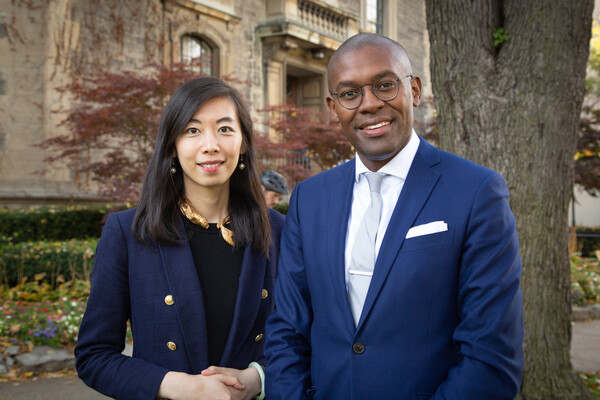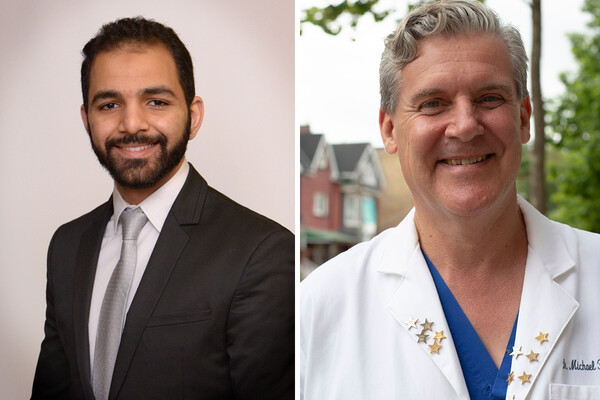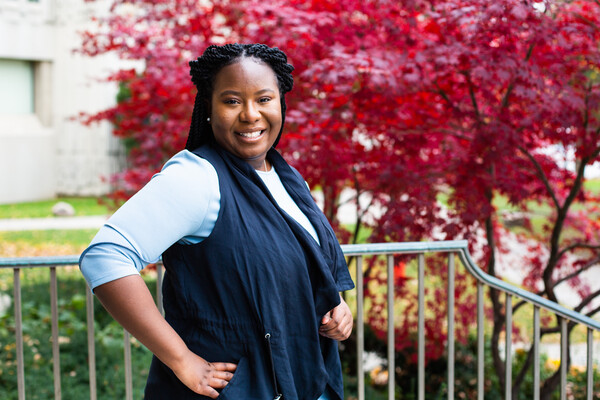Breadcrumbs
- Home
- MD/PhD Program
- News
- Faces of U of T Medicine: Max Morgan
Faces of U of T Medicine: Max Morgan
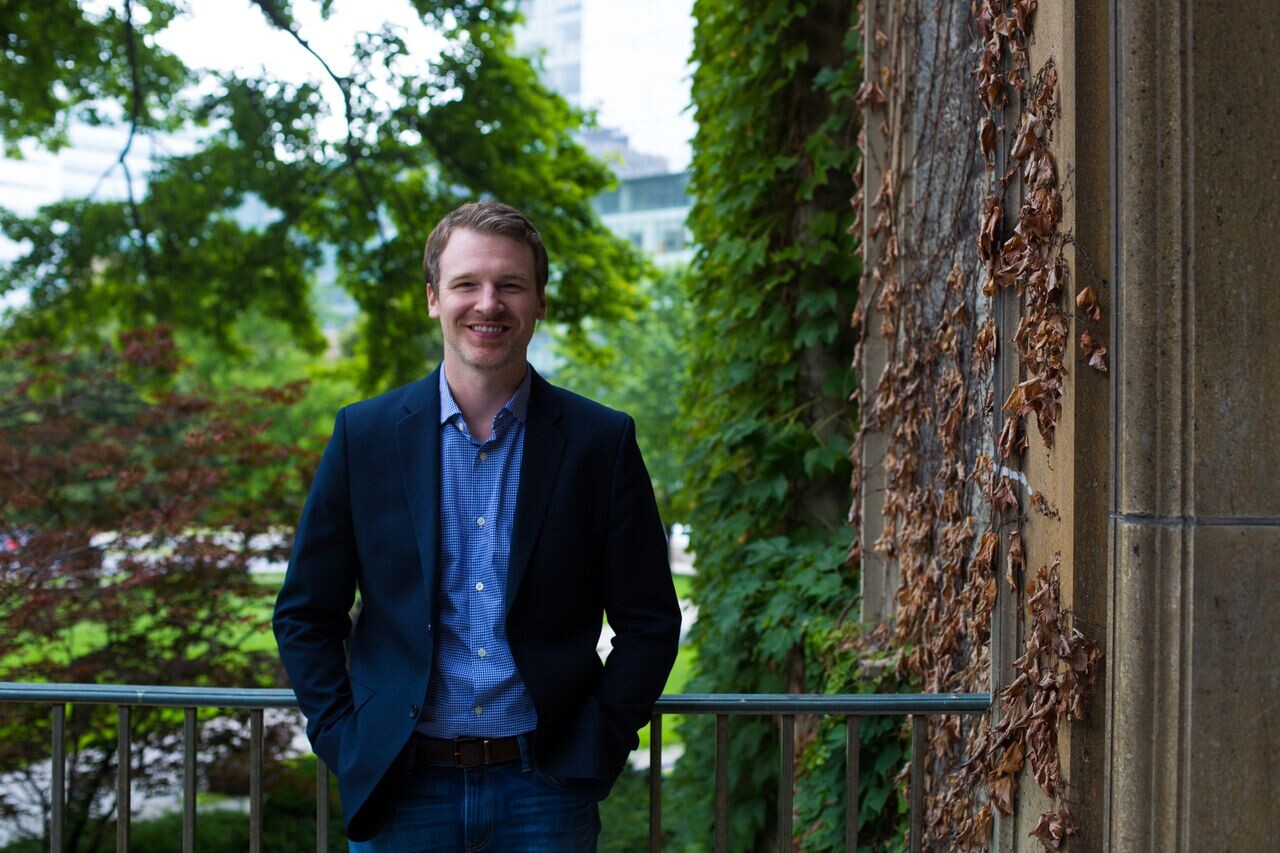
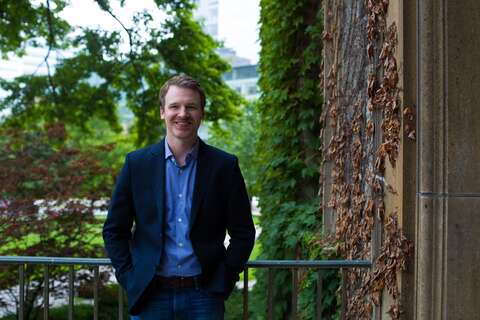
Tell me a bit about yourself. What did you do before joining UofTMed?
Though I’m now a fully committed Ontarian, I grew up in Saint John, New Brunswick and I’m still a Maritimer at heart who misses the sea and the sound of a fog horn (though not the fog that goes along with it). I studied microbiology and immunology at McGill before going to law school at U of T and then practiced as a pharmaceutical patent litigator and drug regulatory lawyer, first in New York City and then in Toronto. Most recently, I’ve worked for the past couple of years as in-house counsel at Grand Challenges Canada, where I help negotiate and structure financings to scale innovations with promise to address health challenges in low- and middle-income countries.
You practiced law before deciding to go into medicine. Can you talk about what spurred the career change? Have you always wanted to be a doctor?
I wanted to be a doctor from a very young age. After undergrad, though I decided to pursue other interests in policy and social justice by studying law, I remained drawn to the idea of practicing medicine one day. And the more I progressed in my legal career in the health sciences space, the more I was exposed to and inspired by amazing clinical science and clinician-scientists, which ultimately convinced me that I should return to the notion of applying to medical school.
Do you think law school helped prep you for medical school in any way?
I think studying and practicing law have been useful in a few ways. At a general level, I think that background will help me internalize the legal and ethical framework governing the practice of medicine. Legal considerations permeate a lot of what physicians do on a day to day basis, be it tort laws around medical negligence and the standard of care, issues of patient informed consent, or duties stemming from both privacy laws and public health laws around how to deal with patient medical information, to name a few. I also think the law is a helpful lens through which to understand and empathize with various social determinants of patients’ health. Legal issues faced by patients – particularly those from underserved communities – can be important contributors to ill-health and thus significant barriers to achieving positive health outcomes. Finally, because of my experience as a both a patent lawyer and then as in-house counsel for a health innovation funding organization, I have a more specific familiarity with the legal and institutional frameworks surrounding health research and innovation. I’m hoping this knowledge proves particularly useful, as I’m planning to pursue a career as a clinician-scientist.
What aspects of medical school are you looking forward to most?
As a lawyer, I spent almost all of my time working with paper behind a desk, but the most rewarding experiences for me were the pro bono asylum cases I was able to take on where I could work directly with, and advocate for, individual clients to help them avoid persecution abroad. Likewise, though there’s no lack of paperwork in medicine (although hopefully less than in law!), what I’m really looking forward to in medical school are the opportunities to engage directly with patients and to learn the clinical skills necessary to care for them, first through Integrated Clinical Experience and then in clerkship. I’m also really excited about the prospect of being back at the bench or in a clinical setting doing research through one of the CREMS programs.
What are your areas of interest? Do you know which specialty you’d like to pursue?
Before law school, I completed an undergraduate honours degree in microbiology and immunology and spent time working in HIV and cancer immunology labs. The immune system has always completely fascinated me and there have been enormous advances since my undergraduate days in our ability to both target and harness the immune system to treat disease. I’m hoping to specialize in an area that allows me to engage with that system both clinically and through research, for example as an infectious diseases expert or medical oncologist.
Medical school is a lot of work. Do you have any hobbies or outlets that will help you de-stress?
Another benefit of having practiced law before medical school is that I’m no stranger to stress! My wife and I have a one-year old son at home and family time with them is the single best medicine after a stressful day. We also love to cook and try new restaurants (though less frequently with the new baby!), and I have a fairly nerdy obsession with sampling and making craft cocktails for friends. I also play a little guitar and piano and jam with a group of friends fairly regularly, which is a great stress reliever.
Faces of U of T Medicine introduces you to some of the interesting people studying in the Faculty of Medicine. From advising political leaders to providing care to Toronto’s most vulnerable populations, our students are making an impact on communities at home and around the world.
Do you have an interesting story to share? Contact us at medicine.communications@utoronto.ca.
News
